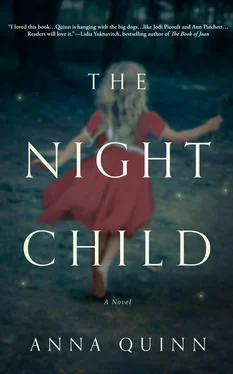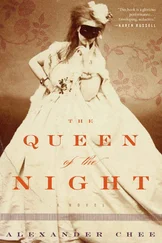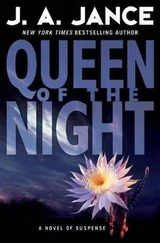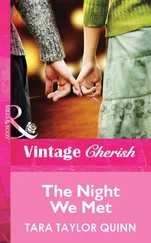“God, this place is a shit hole!”
“Sorry. But Paul?”
“What?” He is more irritated lately. He emerges from the closet with three gray sweatshirts and stands looking at her for several moments before holding each of the shirts up and inspecting their logos. He finds the Nike, pulls it over his head, and walks to the mirror. He speaks to her in the reflection. “Christ, you look terrible. I thought therapy was supposed to make you feel better.”
She knows he is frustrated, scared—he’s not prepared to be married to a crazy person.
“Paul, in the session today, I—”
He turns around and walks over to his dresser, opens the second drawer, and grabs a pair of fresh socks. For the few seconds it takes him to pull them on, she changes her mind. She still can’t tell him about the voice. It wouldn’t do any good to talk about it right now. Not with this hostility between them and not when she herself doesn’t even know what is real and what is not.
“I’m going to head over to Mahoney’s and watch the game, have a beer.”
“Fine.” But then she notices that he’s freshly shaven, something he never does before going to Mahoney’s. He’s lying.
Once he’s gone, she walks downstairs, her hand on the railing, to the kitchen, where she swallows spoonful after spoonful of artificially sweetened vanilla ice cream.
CHAPTER ELEVEN: The morning of January 25, 1997
It is Saturday. Fiona stands barefoot on a wooden stool at the kitchen counter in her favorite flannel nightgown, the one with the bluebirds on it, mixing pancake batter. Paul, still wearing the same clothes from the night before, (he must have slept on the couch) holds the large red bowl steady for her. The Sonics game blares from the radio, and Paul is shouting at Payton to “Run, damn it! Pass! Get off your damn knees!”
“Yeah!” Fiona yells, “Get off your damn knees!”
“Paul, can I talk to you for a moment?” Nora calls from the doorway. “In the living room?”
“I’ll keep listening, Daddy,” Fiona says. “I’ll tell you what happens.”
Paul follows Nora into the living room and flops on the couch, his arm over his eyes. She sits on the opposite end, near his feet.
She stares at his feet then and realizes she has never kissed his body from head to foot like you read about in the magazines, see in the movies. She’s never even squirted whipped cream on his toes or fingers or anywhere and sucked it off. An unexpected thorn of failure stabs at her, even though, in fifteen years of marriage, he has never asked for whipped cream, has never voiced those kinds of needs, those kinds of desires. But maybe now he’s had a change of heart, maybe now he wants more. Of course he wants more. She considers shouting, “DO YOU WANT ME TO SQUIRT WHIPPED CREAM ON YOUR BODY? ARE YOU HAVING AN AFFAIR?” She isn’t prepared for a fight though, doesn’t have the energy, feels she needs to reserve her fortitude for putting herself back together again. Instead she says, “David wants to see me this morning.”
“Why?” Paul asks, almost angry, making her aware she is the one changing the rules.
“I don’t know,” she lies.
“But on a Saturday?” Paul says, sitting up, his hair and clothes rumpled and sideways. “Look at this place.”
She looks. Looks at the messy living room: Christmas cards still on the fireplace mantle, most of them tipped over, pine needles scattered on the wood floor (Paul had taken the tree to the curb weeks ago), Fiona’s stuffed animals strewn around. A naked Barbie doll facedown on the floor near a half-eaten peanut butter sandwich on a paper plate. Morning light slanting through the window magnifies soft piles of dust in every corner.
“What’s happened to you?” he says. He stands and picks up the paper plate, folds it in half and then in half again, the sandwich squished inside it. “You used to be meticulous. You used to care.” Something catches in his voice then, and she thinks he might cry.
She jumps up and grabs the Barbie doll, begins to collect the stuffed animals. “Oh, Paul, I’m sorry, I—” but then a shriek, a loud thump from the kitchen. “Shit!” Nora gasps, drops the toys, and runs into the kitchen, Paul close behind.
A white-faced Fiona sits on the floor, the flames of the propane stove high.
Fiona rubs her elbow, eyes welling. Paul rushes to turn off the stove, and Nora goes to Fiona, kneels down by her, moves her bangs from her eyes. “What happened? Are you okay?”
“I turned on the stove, and the fire scared me, and I fell off the stool.”
“Here, stand up, sweetheart, let’s be sure you’re okay.”
Fiona stands for a moment then wiggles her body in place. “I’m okay, Mommy.”
Paul draws in a slow deep breath, turns off the radio, says, “Sweetie. Don’t ever, ever do that again. You could have been burned very badly.”
“I’m sorry, Daddy, I wanted to help. I wanted—” but then she bursts into sobs, sits down on the floor, blonde head in small hands.
“What is it, honey?” says Nora, stroking Fiona’s hair. “Did you want to show us you’re a big girl?”
“No … I … I wanted to make you … and Daddy breakfast so … you would be happy … and …”
“And what?” Paul says, gentler now.
“And like each other again.”
Over the top of Fiona’s head, Paul’s eyes meet Nora’s with a look of guilt that shoots straight from his heart into hers.
* * *
“How are you feeling?” David asks her once he is settled back to listen and she has adjusted the raven pillow on her lap, folded her hands on its wings, careful to leave the black of its eye exposed. Her grandfather told her once that ravens were omniscient, the wisest of all animals. “There is wisdom in a raven’s head,” he’d say whenever one flew over the house.
“Nora?”
“I’m afraid,” she says quietly.
“I understand.”
“I wasn’t expecting this.”
“No one expects this.”
“My body feels strange to me,” she says. She focuses her eyes on the closed window blinds. “And Fiona knows something is wrong.” She pauses for a moment. Outside, someone revs the engine of a car. The ferry horn blows in the distance, and she wishes she were on it, wishes she were gazing out at whitecaps and gulls and islands instead of grimy metal blinds. “I’m scared we’ll mess her up for life.” And then, “Shit, I’m so fucked up.”
“You aren’t fucked up, and you’re not going to mess Fiona up for life.” He studies her eyes as if he’s deciding whether or not to continue. “Listen—and Nora, you do have to know, I’m not someone who adheres closely to labels, but you may be suffering from post-traumatic stress disorder—PTSD—it’s a condition triggered by something horrible, and the symptoms can be flashbacks, nightmares, anxiety, hallucinations, and so on.”
Thoughts of soldiers returning from war without arms or legs or hope come into her mind. She leans back into the couch and stares at the ceiling. No one says anything for several minutes.
“Dissociation—an altered state of consciousness—is on the PTSD continuum. People sometimes dissociate when they fear death or can’t escape a dangerous situation—they mentally leave the situation, imagine they’re somewhere else, lose awareness of the environment, become someone else. Some may see the event as happening to someone else and watch as if they’re a bystander. Many try to forget the event and contain the memories in a mental lockbox in order to keep functioning in a normal way.”
She continues to stare at the ceiling. It is beginning to be difficult to track all the words. She feels a bit like she’s listening underwater.
Читать дальше












